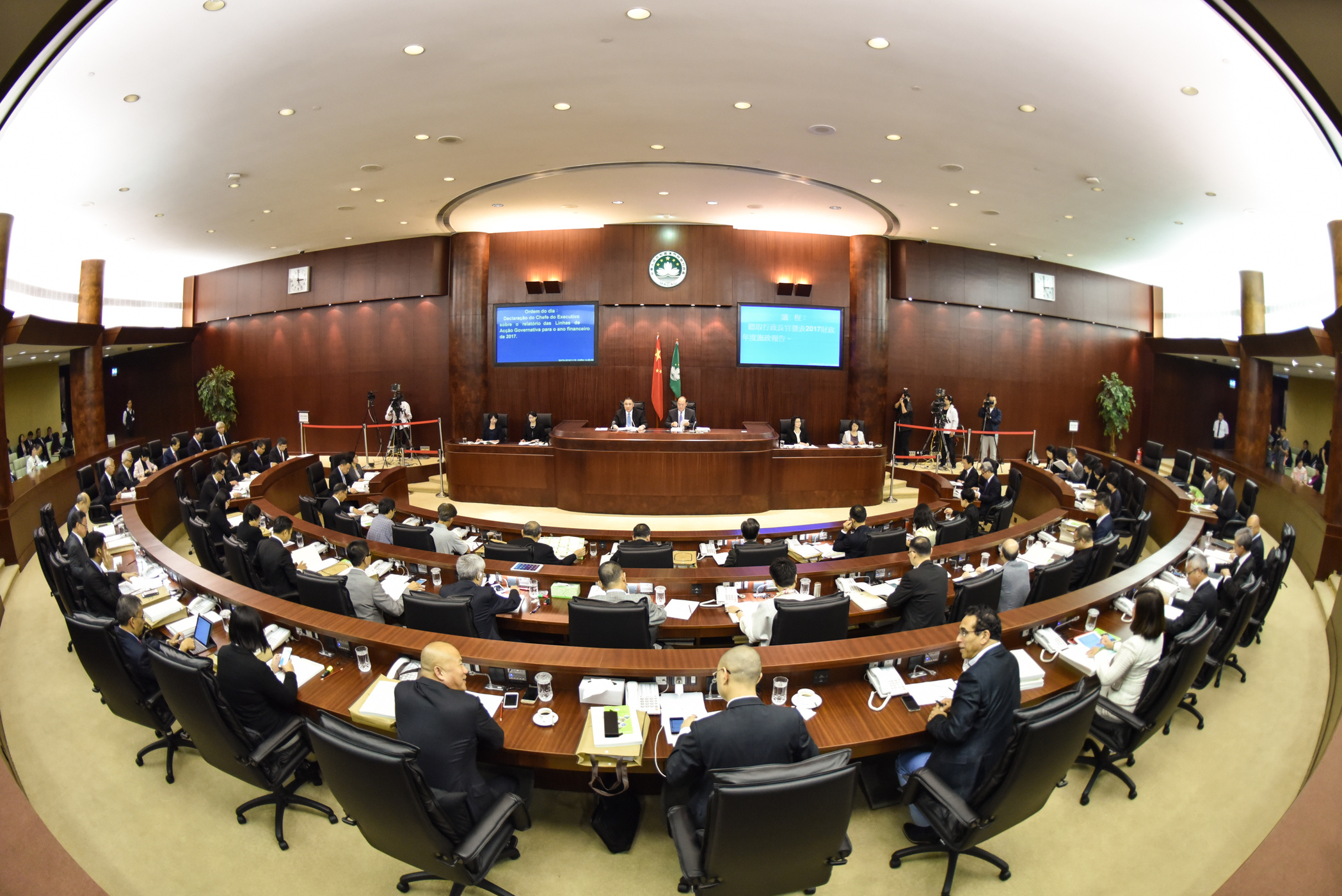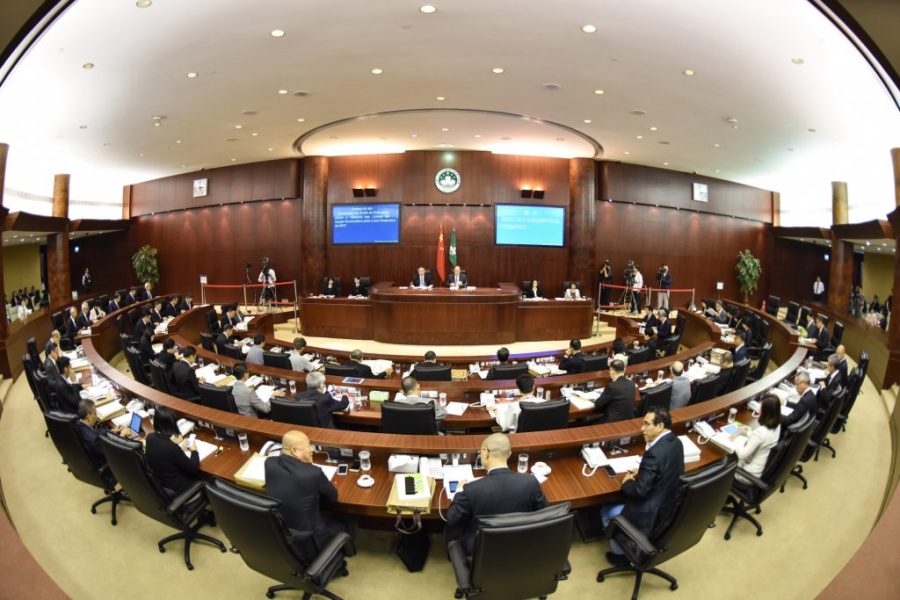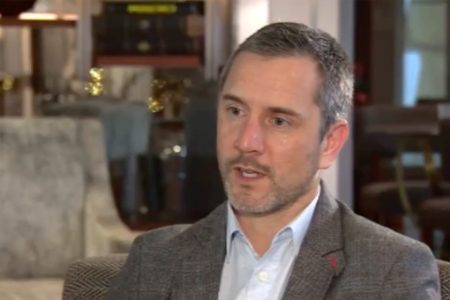Chief Executive Chui Sai On said in his 2017 Policy Address that the government would continue to implement its current public housing policy in which social rental housing will be given priority over subsidised home ownership scheme (HOS) flats.
Chui also said that the government would continue its annual “wealth-sharing” handout scheme next year – 9,000 patacas for permanent and 5,400 patacas for non-permanent residents, both amounts unchanged from this year.
Presenting his policy address during a plenary session of the Legislative Assembly (AL), Chui also said the government was proposing a 2.47 per cent increase in public servants’ salaries, adding he expected the increase to take effect in January.
The proposal must be approved by the legislature.
In response to reporters’ questions during a post-policy address press conference about his proposal to raise public servant’s salaries while the cash handout is to remain unchanged, Chui said the government had considered various factors such as the government’s financial capacity and the rate of inflation, adding the government had also considered suggestions from several civil service associations and a government-appointed council tasked with assessing public servants’ salaries.
The city’s inflation rate stood at 1.59 per cent in September.
Chui was accompanied by his principal officials, members of the Executive Council (ExCo) and other senior officials when he presented his policy address in the legislature’s hemicycle.
After addressing the legislature, Chui held a 45-minute press conference at Government Headquarters. It took him about an hour to deliver his policy address in the legislature.
According to Chui, the government plans to increase public servants’ salaries from 81 patacas to 83 patacas per salary point, an increase of 2.47 per cent.
The number of public servants stood at 30,243 at the end of September, according to the Public Administration and Civil Service Bureau (SAFP).
Public servants’ salaries were raised by 2.53 per cent in January this year, from 79 to 81 patacas per salary point. In 2015, their salaries were raised by 6.75 per cent while in 2014 the increase was 5.71 per cent. In 2013, the increase in public servants’ salaries was 6.06 per cent. Civil servants are among Macau’s best-paid employees who, moreover, enjoy a raft of fringe benefits not offered by most of the city’s private sector employers.
Chui also said his government would continue to pay a raft of subsidies and allowances to various segments of civil society, such as the elderly, low-income families and employees, the disabled, pupils and students.
According to Chui, the old-age pension will remain at 3,450 patacas per month and old-age allowances at 8,000 patacas per year for next year.
Chui said the government expected its expenditure on subsidies and welfare measures to amount to 12.4 billion patacas next year, or about 12 per cent of the total budget, including the “wealth-sharing’ handouts.
Chui also said the government would study whether ft would upgrade some short-term welfare measures to long-term measures.
During the press conference, when asked by the media whether the government would consider linking its annual cash handouts to the government’s surplus, Chui said, “Opinions and studies show that the wealth-sharing handout scheme is really able to benefit many residents.
“While we suggested various short-term allowance and subsidy measures in each of the previous policy addresses, I think it will be a right time next year [the middle of the government’s current term] to study the feasibility of whether some short-term allowance and subsidy measures should be changed to long-term measures”, Chui said.
“Which allowance and subsidy measures should be changed to long-term ones should be based on the government’s financial capacity”, Chui said.
“However, we all know that if we suddenly cease the allowance and subsidy measures that have been implemented for years, it may create negative feedback [from residents)”. Chui said.
When asked by a reporter whether the government planned to impose stronger cooling measures on the property market, Chui said the government would closely monitor the property market, adding that it would implement stronger measures if necessary. He pointed out that the government has not abolished the cooling measures that it launched previously.
In response to a reporter’s question about the city’s gaming revenues, Chui said the government expected the gaming sector’s revenuesnext year to amount, once again, to 200 billion patacas.
Late last year, the government forecast the gaming revenues for this year to be 200 billion patacas.
The gaming revenues during the first 10 months of this year amounted to 184.6 billion patacas, a 5.8 year-on-year decrease.
Chui also said he was confident that the local economy will grow at a “low single digit” per cent next year.
The International Monetary Fund (IMF) forecast in October that Macau’s economy will drop by 4.7 per cent this year. The Washington-based lender predicted growth of 0.2 per cent for next year.
(Macau News / The Macau Post Daily)






